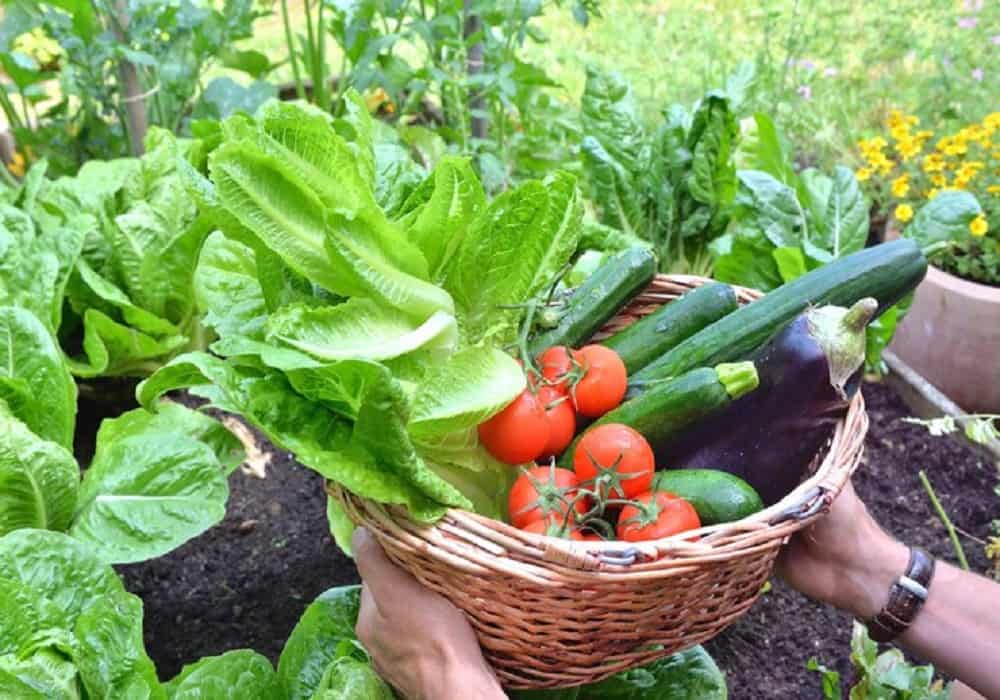Kitchen Garden Vegetables in India: How to Grow Organic Greens at Home
Growing your own kitchen garden vegetables in India is a fantastic way to enjoy fresh, chemical-free food from your own backyard, balcony, or terrace. Given India’s varied climate, it’s easy and rewarding to cultivate kitchen garden vegetables in India at home. No matter your space, you can grow a range of vegetables for a healthier, sustainable lifestyle.
Advantages of a Kitchen Garden
- Chemical-Free Food – Homegrown veggies lack harmful pesticides.
- Cost-Effective – Lowers grocery bills by providing fresh produce.
- Nutritional Value – Freshly picked vegetables have higher nutrient retention.
- Eco-Friendly – Cuts carbon footprint by reducing transport and packaging waste.
- Therapeutic Hobby – Gardening offers relaxation and a connection to nature.
Top Kitchen Garden Vegetables in India
Here are some of the easiest and most rewarding vegetables to grow:
1. Tomatoes (Tamatar)
- Growing Conditions: Needs 6-8 hours of sun, well-drained soil, and consistent watering.
- Tips: Use stakes or cages to support growth.
2. Chillies (Mirchi)
- Growing Conditions: Prefers warm weather, well-drained soil, and moderate watering.
- Tips: Regular harvesting promotes more fruiting.
3. Spinach (Palak)
- Growing Conditions: Thrives in partial sun and moist, nutrient-rich soil.
- Tips: Directly sow seeds and pick leaves as needed.
4. Coriander (Dhaniya)
- Growing Conditions: Grows well in mild sunlight with regular watering.
- Tips: Keep soil moist but avoid overwatering.
5. Fenugreek (Methi)
- Growing Conditions: Likes well-drained soil and moderate sunlight.
- Tips: Pick young leaves for the best flavor.
6. Brinjal (Baingan)
- Growing Conditions: Requires full sun and well-drained soil.
- Tips: Guard against pests like aphids and caterpillars.
7. Carrots (Gajar)
- Growing Conditions: Prefers loose, sandy soil and cool temperatures.
- Tips: Thin seedlings to ensure proper growth.
8. Radish (Mooli)
- Growing Conditions: Grows quickly in well-drained soil and moderate sunlight.
- Tips: Harvest young for a tender taste.
9. Ladyfinger (Bhindi)
- Growing Conditions: Needs warm weather and well-drained soil.
- Tips: Prune regularly for better yields.
10. Cucumbers (Kheera)
- Growing Conditions: Prefers warm temperatures and high moisture.
- Tips: Use a trellis for growth and fruit support.
How to Start Your Kitchen Garden
Follow these steps to successfully grow vegetables in India:
1. Choose the Right Spot
- Pick an area with good sunlight and airflow.
- Balconies, terraces, or backyards are ideal for gardening.
2. Select Proper Containers or Garden Beds
- Use pots, grow bags, or raised beds based on available space.
- Make sure there’s proper drainage to prevent rot.
3. Use Organic Soil and Compost
- Combine garden soil with organic compost for better fertility.
- Steer clear of chemical fertilizers; opt for natural compost instead.
4. Watering and Mulching
- Water regularly but avoid overwatering to prevent fungal issues.
- Mulching helps maintain soil moisture and control weeds.
5. Pest and Disease Management
- Apply neem oil, garlic spray, or a soap solution to repel pests.
- Practice crop rotation to sustain soil health.
6. Timely Harvesting
- Harvest vegetables when they are ripe yet tender.
- Frequent harvesting promotes increased yield.
Conclusion
Growing kitchen garden vegetables in India is an eco-friendly and fulfilling endeavor that offers fresh, nutritious, and chemical-free produce for your family. With proper care and techniques, anyone can establish a thriving home garden. Start small, select kitchen garden vegetables in India that are easy to grow, and relish the joy of harvesting your own organic greens.
Each vegetable has a different harvesting period. Leafy greens can be harvested multiple times by trimming outer leaves, while root vegetables need time to mature before harvesting. Freshly picked vegetables not only taste better but also retain more nutrients, making homegrown food healthier and more flavorful.
With patience and care, your kitchen garden can provide a steady supply of fresh produce throughout the year. Gardening is not just about food—it’s a fulfilling hobby that brings you closer to nature. Happy gardening!






